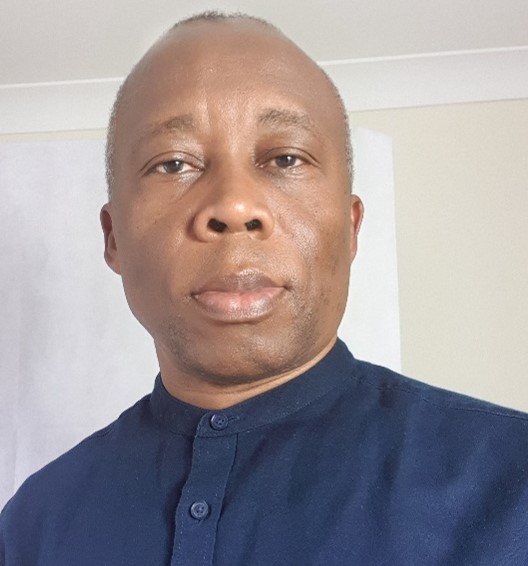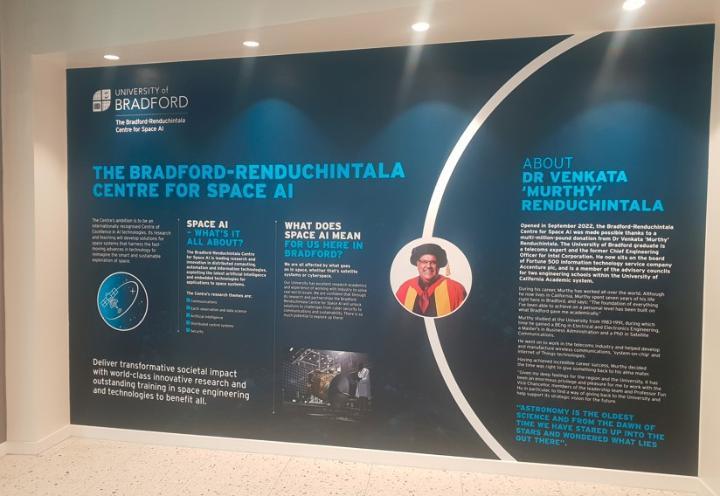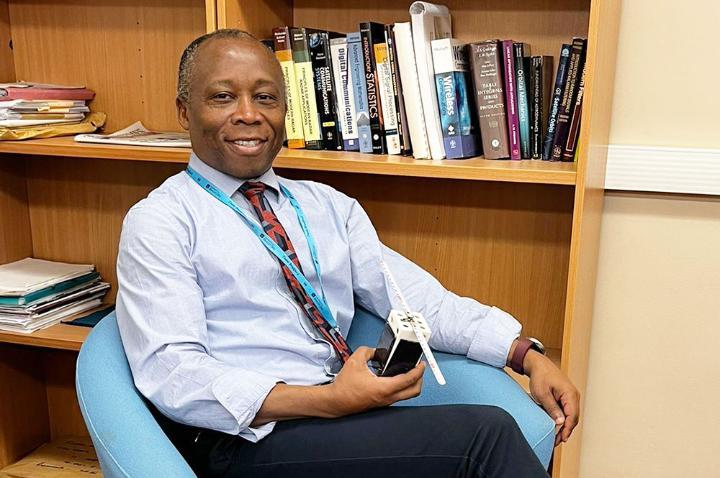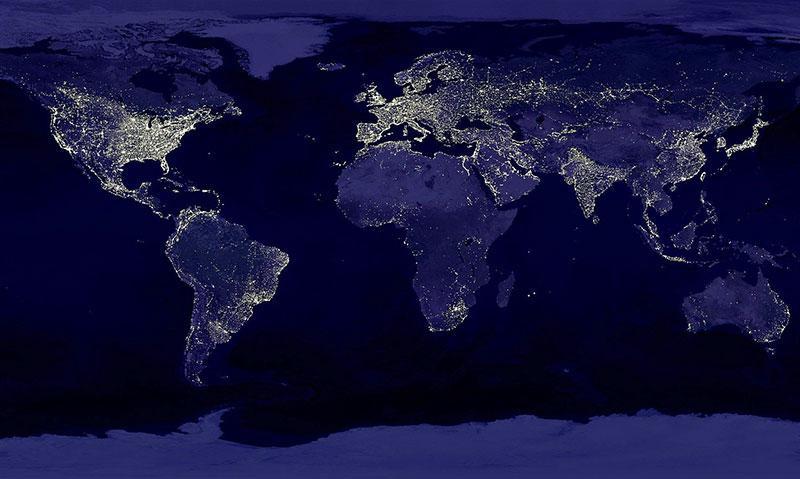Academic profile - Professor Ifiok Otung
Space research can bring a feelgood factor to Bradford
Ifiok Otung is Director of the Bradford-Renduchintala Centre for Space AI and Professor of Space Engineering at the University of Bradford. He has recently joined the university from the University of South Wales where he was Professor of Satellite Communications. We chatted to Prof Otung about his plans for research at the Centre...
What drew you to Bradford and the Bradford-Renduchintala Centre for Space AI?
It was attractive to me as a chance to get involved with a team drawn from both industry and academia, and I thought it was a fantastic opportunity to provide leadership to take things forward as the next stage in my career. It’s a big project with lots of ambition to do new things that could potentially have a massive impact. This includes having students and staff involved in producing miniaturised satellites that can be launched into low Earth orbit, developing low-cost computing and a more sustainable and smarter use of space technology.

Professor Ifiok Otung
Why is research into space technology important for Bradford?
Bradford has a long history of involvement in satellite communications going back to the 1980s. In fact, the donor, Dr Murthy Renduchintala did his PhD in satellite communications in Bradford in the 1980s, and there are quite a few other notable Bradford alumni that I have worked with in this field. There’s a rich history of satellite communications in Bradford, along with associated radio frequency and wireless communications expertise, so the University is a fitting home for the Centre.
The feelgood factor associated with space adventure can’t be overestimated, and if we succeed it will have a positive impact on the University of Bradford. My feeling is that people will come to Bradford to study Business or Health Sciences for example, just because they've heard about Bradford Space, which is hopefully a brand that we can make global if we are successful.

A display at the University of Bradford about the Centre for Space AI
It's very important to the university and I think it's going to be very important to the region. Bradford has just been awarded the status of City of Culture 2025 and we can potentially connect our space technologies to the year’s cultural events. For example, imagine if we have a Bradford miniaturised satellite orbiting space which is in the media regularly through the data and pictures it is collecting; or if we have a satellite control centre that young people can come and interact with - it could really attract them into engineering or inspire them in other careers.
I think our use of space is going to be impactful on the University of Bradford and on Bradford city and they can both share in the feelgood factor we aim to create.
How does the use of Artificial Intelligence (AI) benefit space technology?
AI has become very popular over the last decade because it allows us to make optimal decisions if we have reliable data. So, one of the things that it would help us do is process the huge amount of raw data collected in space, extract the intelligence from it and send down a very small subset of the most relevant data.
AI also helps you to look at historical patterns to predict what will happen. It's important because you can take proactive measures instead of reactive measures - being proactive enables you to prevent loss so you never lose data. Such processing would really help us to use space more sustainably and intelligently as it would greatly reduce the amount of power and signal bandwidth required.
Can you tell us about the PocketQube satellite and some of the other interesting forthcoming projects?
The PocketQube is so-called as it is made up of 5x5x5 cm3 units which can be stacked, maintaining a cross sectional area of 5x5 cm2. Although very small, this object still needs to fulfil a purpose, and so houses essential equipment such as processors, transmitters, receivers, simple sensors to take measurements, e.g. magnetic fields or greenhouse gas emissions, and even a camera.
The small size means that one or more PocketQube satellites can be piggybacked into orbit during the launch of a bigger satellite, and this process could cost as little as £25,000 (compared to millions of pounds to launch a big satellite), making space more affordable and achievable.
But the challenge with the PocketQube is that because it's that small, there isn’t a big surface area that can convert solar energy into electricity. Its power generation capability is very small and there is very little power left for transmitting loads of data or doing intensive computations, so that's where we want to try to develop new technology in the area of low cost, low power computing. That is the future we believe.

Prof Otung with a prototype of the PocketQube satellite.

A visualisation of the earth from space based on satellite photography.
Our research goes beyond PocketQubes and includes the big satellites used for commercial services such as TV and video broadcasting, broadband Internet access, and Very Small Aperture Terminal (VSAT) networks. The issue we’re facing is that the radio spectrum is becoming increasingly full at the lower radio frequencies where transmission conditions are more benign. There is bandwidth available at higher frequencies, but the signal can be hugely impaired by rain and to a lesser extent by water vapour and oxygen in the atmosphere. We want to develop smart and cost-effective techniques that will enable satellite communication links to operate reliably at these higher frequencies even during intense rain events.
Our research covers various other areas but overall is focused on driving a sustainable exploitation of space technologies to meet some of the big challenges faced by society. How do you measure and mitigate the impact of climate change? How do you satisfy society’s exponentially increasing demand for data transmission using a fixed-amount natural resource like the radio spectrum? How do you protect information flow against the malign schemes of bad actors? How do you use space to reduce world poverty and the digital divide? I believe that Bradford researchers and the Centre can be at the forefront of developing some of the best solutions.
What are the plans for developing researchers at the centre?
My first focus is to make the MSc in Satellite Systems Engineering successful. The target is by September this year we will have 20 students on the master's course, growing steadily to 60 students by 2027. This is the foundation for the PhD, with the aim of around 20 postgraduate research students in a few years' time. A successful MSc course will help us to build a successful PhD programme that in turn fosters a thriving postdoctoral research environment. We are reaching out to space agencies across the world to set out how our world-class training, research, and facilities can benefit the space industry as a whole.
